- Out of nearly 5,000 entries, Merck Serono won acclaim in the 60th anniversary of the Red Dot Award: Product Design 2015
- Award recognizes Merck Serono’s commitment to developing innovative drug delivery devices with high convenience and reliability
Darmstadt, Germany, June 10, 2015 – Merck Serono, the biopharmaceutical business of Merck, today announced that the product design of its fertility pens won over the 38-member jury of the Red Dot Award: Product Design 2015. The company was honored with a total of two awards for its Merck Serono Fertility Family of PensTM in this year’s competition. The pens are used in fertility treatment to inject hormones for follicle stimulation, helping women and couples realize their dream of having a baby.
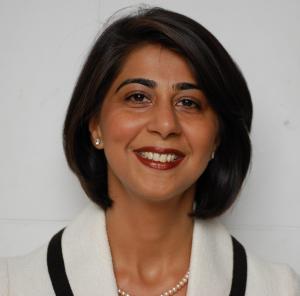
Meeta Gulyani, Head of Global Strategy and Franchises, Merck Serono
“Winning two Red Dot Awards for our Family of Pens is a remarkable achievement for Merck Serono which acknowledges our dedication and attention to detail in designing these innovative drug delivery devices to meet the needs of patients”, said Meeta Gulyani, Head of Global Strategy and Franchises at Merck Serono. “Bringing to life our motto ´As One for Patients´, developing these products was a collaborative process involving, Merck Serono´s business as well as medical device experts and our manufacturing partner the company Haselmeier. Receiving the Red Dot Awards shows that, by working together closely, we succeeded in developing devices with a unique design and high user friendliness that inspire confidence and convey reliability.”
Merck Serono’s Family of Pens is the first pre-filled, ready-to-use set of injection devices for fertility treatment. It is based on healthcare professionals’ and patients’ feedback to provide a common injection platform for Merck Serono’s gonadotropins. One of these essential hormones to treat infertility is Merck Serono’s Gonal-f® (follitropin alfa), a recombinant human follicle-stimulating hormone (r-hFSH) which is prescribed to supplement or replace naturally occurring FSH in women undergoing assisted reproductive technology (ART). In 2011, Merck Serono launched Gonal-f as a pre-filled pen for self-administration which has since been introduced in 74 countries. Other models support the injection of Ovidrel®.
With their clear and functional product design language, the pens ranked first amongst tough competition for a Red Dot Award, which is celebrating its 60th anniversary. The Award committee received a total of 4,928 entries from 56 countries this year. Throughout the world and across different industries, Red Dot is seen as the award for high design quality. The Red Dot Awards will be presented at a gala event in Essen (Germany) on 29 June 2015. The winning products are then presented for four weeks in the special exhibition “Design on Stage” before being included in the museum’s permanent exhibition. With roughly 2,000 exhibits over 4,000 square meters, the Red Dot Design Museum presents the world’s largest exhibition of contemporary design.
About the Red Dot Award
In order to appraise the diversity in the field of design in a professional manner, the Red Dot Design Award breaks down into the three disciplines of Red Dot Award: Product Design, Red Dot Award: Communication Design and Red Dot Award: Design Concept.
The Red Dot Award was created by Design Zentrum Nordrhein Westfalen and with around 17,000 entries each year is one of the best-respected design competitions in the world. In 2015, it is celebrating its 60th anniversary: It was in 1955 that a jury convened for the first time to assess the best designs of the day. The sought-after award, the “Red Dot”, is the revered international seal of outstanding design quality.
Award-winning designers, manufacturers and agencies use the Red Dot winner label and receive numerous other winners’ privileges, such as the presentation of the award-winning product on Red Dot Online, in the Red Dot Design Yearbook, the Red Dot App and on Red Dot 21. Additionally, the winning products are communicated in the international PR activities of Red Dot and exhibited in the Red Dot Design Museum Essen for a whole year.
More information is available at http://www.red-dot.org/press.
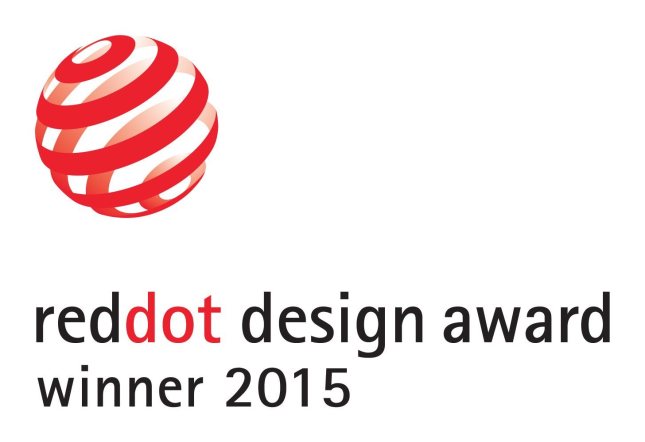
About Merck Serono
Merck Serono is the biopharmaceutical business of Merck. With headquarters in Darmstadt, Germany, Merck Serono offers leading brands in 150 countries to help patients with cancer, multiple sclerosis, infertility, endocrine and metabolic disorders as well as cardiovascular diseases. In the United States and Canada, EMD Serono operates as a separately incorporated subsidiary of Merck Serono.
Merck Serono discovers, develops, manufactures and markets prescription medicines of both chemical and biological origin in specialist indications. We have an enduring commitment to deliver novel therapies in our core focus areas of neurology, oncology, immuno-oncology and immunology. For more information, please visit http://www.merckserono.com.
All Merck Press Releases are distributed by e-mail at the same time they become available on the Merck Website. Please go to http://www.merckgroup.com/subscribe to register online, change your selection or discontinue this service. Merck is a leading company for innovative and top-quality high-tech products in healthcare, life science and performance materials. The company has six businesses – Merck Serono, Consumer Health, Allergopharma, Biosimilars, Merck Millipore and Performance Materials – and generated sales of around € 11.3 billion in 2014. Around 39,000 Merck employees work in 66 countries to improve the quality of life for patients, to foster the success of customers and to help meet global challenges. Merck is the world’s oldest pharmaceutical and chemical company – since 1668, the company has stood for innovation, business success and responsible entrepreneurship. Holding an approximately 70% interest, the founding family remains the majority owner of the company to this day. Merck, Darmstadt, Germany, holds the global rights to the Merck name and brand. The only exceptions are Canada and the United States, where the company operates as EMD Serono, EMD Millipore and EMD Performance Materials.
Tags: fertilisation treatment, Fertility, fertility drugs, fertility research, fertility treatments, Gonal-F® (follitropin alfa for injection) pen, infertility, infertility experts, infertility treatment, ivf, Meeta Gulyani, ovidrel, Red Dot Design Awards
June 8, 2015: Merck Serono Fertility is on its way to strategically grow from a pure drug company to a holistic Fertility Provider, supporting the improvement of success in Assisted Reproductive Treatment (ART) by going beyond drugs. Following the announcement of a global collaboration agreement with Genea Biomedx a few days ago, the Fertility Technologies unit takes the next big leap forward: It initiated a consortium that aims to advance excellence in fertility technologies and processes within the ART laboratory – the Global Fertility Alliance.
Merck Serono partners with two other companies: Illumina, a leader in developing and commercializing systems for analysis of genetic variation and function, and Genea, a leading fertility clinic chain with broad experience in fertility treatment and development of innovative fertility technologies. The formation of the Global Fertility Alliance comes just in time for the annual congress of the European Society of Human Reproduction and Embryology (ESHRE) in Lisbon, Portugal (June 14-17, 2015), where the alliance will be launched and introduced to the fertility community.

Meeta Gulyani, Head of Global Strategy and Franchises, Merck Serono
All partners of the alliance share a joint desire to help improve fertility outcomes by contributing to the standardization of technologies and protocols in the ART lab. Together they will address variation in practices and technologies that lead to inconsistent results and outcomes.
“We are the global leader in the field of fertility drugs and committed to supporting the success and improvement in ART by going beyond drugs with innovative technologies,” explained Meeta Gulyani, Head of Global Strategy and Franchises at Merck Serono. “By forging the Global Fertility Alliance with partners like Illumina and Genea, we aim to support the development of needed global standards in ART labs. This will ensure a consistently high level of performance between different centers and countries.”
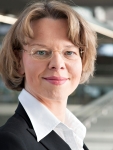
Dorothea Wenzel, Head Global Business Franchise Fertility, Merck Serono
Recognizing the importance of innovation in ART technologies Merck Serono together with Illumina and Genea aims to enhance progress in three ways: Firstly, the founding members aim to foster integration of multiple, leading fertility technologies. Secondly, building on this, the alliance will aim to collaborate with leading health care professionals and medical societies to develop global standards. And finally, as technologies in the fertility space are rapidly advancing, the alliance will also develop educational resources for health care professionals worldwide. In order to rapidly progress the initiative, the alliance will establish a board of representatives which will meet regularly. At the same time, the alliance’s founding partners are inviting new members, who demonstrate a consistent commitment to driving technology innovation and improving ART results, to join the alliance.
Dorothea Wenzel, Head Global Business Franchise Fertility, concludes: “Founding the Global Fertility Alliance is another important step for Merck Serono towards improving the consistency in ART labs worldwide. We really can make a difference here, together with our current and potential future partners. It is great to see how our Fertility Technologies group is moving forward, working to improve quality in the labs to help couples create families.”
Tags: Assisted Reproductive Treatment, Dorothea Wenzel, ESHRE, European Society of Human Reproduction and Embryology, Fertility, fertility drugs, fertility research, fertility treatments, Genea, Genea Biomedx, illumina, infertility, infertility experts, infertility treatment, ivf, IVF research, IVF Treatment, Meeta Gulyani
- Global collaboration to extend the portfolio of Merck Serono, a leading company in fertility treatment, in the growing market of fertility technologies to support standardization and improve fertility outcomes
- Merck receives global marketing and commercialization rights for three key innovative technologies, as well as pipeline of future products
- Investing into innovation beyond drugs is currently seen as a key lever for improving outcomes
Darmstadt, Germany, May 28, 2015 – Merck, a leading company for innovative and top-quality high-tech products in healthcare, life science and performance materials, today announced the global collaboration agreement with the fertility technologies expert Genea Biomedx, an Australian company, dedicated to advancing fertility science and helping couples create families. With this partnership, Merck Serono, the biopharmaceutical business of Merck, and global market leader in drugs for Assisted Reproductive Treatment (ART), receives global marketing and commercialization rights to Genea Biomedx’s product portfolio. This comprises the innovative Gavi, Geri and Gems product lines which are expected to receive CE mark in Europe shortly, as well as a joint development pipeline.
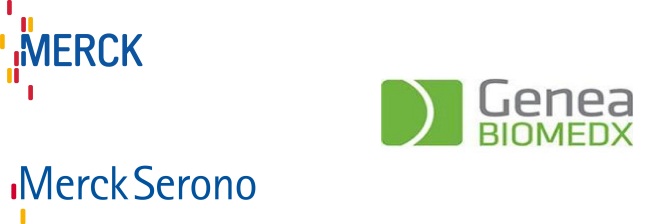 Gavi will be the world’s first fully automated vitrification instrument, focusing on lab processes with the aim of reducing potential errors and increasing efficiency in cryopreservation of embryos and in the future for oocytes (eggs). Geri is a benchtop incubator fitted with a time-lapse camera to capture images of embryos as they develop and individually controlled incubation chambers per patient to minimize disruptive events to the early-stage embryo. Gems is the latest generation of Genea’s culture media allowing for high quality embryo cultivation.
Gavi will be the world’s first fully automated vitrification instrument, focusing on lab processes with the aim of reducing potential errors and increasing efficiency in cryopreservation of embryos and in the future for oocytes (eggs). Geri is a benchtop incubator fitted with a time-lapse camera to capture images of embryos as they develop and individually controlled incubation chambers per patient to minimize disruptive events to the early-stage embryo. Gems is the latest generation of Genea’s culture media allowing for high quality embryo cultivation.
The collaboration is part of the company’s strategy to provide the best fertility solutions to its customers to increase success rates. With the global rights to these three product lines and future developments, Merck Serono is expanding its market position, offering key potentially outcome improving technologies to support standardization, automation and objectivity. To further strengthen this position, Merck Serono will closely collaborate with Genea Biomedx to jointly develop other innovative technology products and services, and have formed a development hub to pave the way for further improvements for the patient.
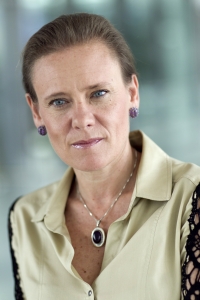
Belén Garijo, Member of the Executive Board of Merck and CEO Healthcare
“As a pioneer in reproductive health, we are continuously seeking to extend our product portfolio to bring innovative science and services to the fertility community,” explained Belén Garijo, Member of the Executive Board of Merck and CEO Healthcare. “There is significant need for improved technologies in fertility treatment, since the majority of issues in ART are beyond drug therapy. The key priority of our Fertility Technologies unit at Merck Serono is to advance our fertility portfolio beyond drugs and to enable innovation in technologies and services. Entering a global partnership with Genea will allow Merck to introduce innovative technologies in the ART market, further aiming to improve outcomes throughout the in vitro fertilization process. Merck Serono is dedicated to help patients realize their dream of creating a family.”
“Advancing the science of fertility treatment to improve outcomes and success rates for patients worldwide is Genea’s mission and we are excited that our agreement with Merck helps us continue to bring that aim to fruition,” said Tomas Stojanov CEO of Genea. “The launch of the three products, Gems, Gavi and Geri, is just the beginning of a unique collaboration between our two companies which will deliver innovative, high-technology products and thinking to fertility clinics around the world.”
The collaboration showcases both companies’ commitment to improve fertility treatment. Both Merck Serono and Genea Biomedx have a strong heritage in fertility treatment and will build on this expertise to invent and develop innovative fertility technologies. The collaboration is effective from May 1, 2015. Financial details of the agreement are not being disclosed.
Genea Biomedx
Genea Biomedx creates and manufactures practical, accessible and precise fertility technologies that help standardise and automate fertility treatment. Its unique relationship with Genea Fertility means that Genea Biomedx is a manufacturer that truly understands the customers’ perspective. As a result Genea Biomedx has developed the world’s first automated vitrification instrument, and has other projects well advanced in the product pipeline.
Gavi, Geri and Gems
- Gavi – will be the world’s first automated vitrification instrument; Vitrification is a process used in IVF to preserve human egg cells (oocytes) or embryos by cooling them to deep sub-zero degrees. Approaching the process in an innovative way, Gavi uses an automated, standardized protocol aiming to provide consistent results in blastocyst vitrification.
- Geri – a benchtop incubator with individually controlled incubation chambers per patient to minimize disruptive events to the early-stage embryo. It also incorporates a time-lapse camera to capture images of embryos as they develop.
- Gems – the latest generation of Genea’s culture media for embryo cultivation.
Merck Serono
Merck Serono is the biopharmaceutical business of Merck. With headquarters in Darmstadt, Germany, Merck Serono offers leading brands in 150 countries to help patients with cancer, multiple sclerosis, infertility, endocrine and metabolic disorders as well as cardiovascular diseases. In the United States and Canada, EMD Serono operates as a separately incorporated subsidiary of Merck Serono. Merck Serono discovers, develops, manufactures and markets prescription medicines of both chemical and biological origin in specialist indications. We have an enduring commitment to deliver novel therapies in our core focus areas of neurology, oncology, immuno-oncology and immunology.
For more information, please visit http://www.merckserono.com.
Merck is a leading company for innovative and top-quality high-tech products in healthcare, life science and performance materials. The company has six businesses – Merck Serono, Consumer Health, Allergopharma, Biosimilars, Merck Millipore and Performance Materials – and generated sales of around € 11.3 billion in 2014. Around 39,000 Merck employees work in 66 countries to improve the quality of life for patients, to foster the success of customers and to help meet global challenges. Merck is the world’s oldest pharmaceutical and chemical company – since 1668, the company has stood for innovation, business success and responsible entrepreneurship. Holding an approximately 70% interest, the founding family remains the majority owner of the company to this day. Merck, Darmstadt, Germany, holds the global rights to the Merck name and brand. The only exceptions are Canada and the United States, where the company operates as EMD Serono, EMD Millipore and EMD Performance Materials.
Tags: Belén Garijo, Biotech, Fertility, fertility drugs, fertility research, fertility treatments, GAVI, GEMS, Genea Biomedx, GERI, infertility, infertility experts, infertility treatment, invitro fertilization, ivf, IVF research, IVF Treatment, merck serono, Merck Serono Fertility, Merck Serono India, world’s first automated vitrification instrument
MUMBAI | SEP 19, 2013: Changing lifestyle, stress and delayed marriages are leading to a rise in the incidence of infertility in India, a survey has found. The survey ‘Helping Families’ was conducted among 2,562 participants and 100 infertility experts from nine cities.
It said as many as 46 per cent of young couples in the 31-40 year-age group surveyed were found to be infertile.
The survey was supported by Merck Serono, the bio-pharmaceutical division of global drug giant Merck KGaA.
 The findings were endorsed by Indian Society for Assisted Reproduction and Asia Pacific Initiative on Reproduction (ASPIRE), Merck Serono said in a release here today.
The findings were endorsed by Indian Society for Assisted Reproduction and Asia Pacific Initiative on Reproduction (ASPIRE), Merck Serono said in a release here today.
Of the surveyed group, 49 per cent have undergone IVF (In-vitro fertilisation) treatment and the rest of them were considering opting for infertility treatment, it said.
When infertility experts were consulted, they shared that 63 per cent of couples seeking infertility treatment are in the age group of 31-40, it said.
“With changing lifestyle, stress and delayed marriages, the incidences of infertility are also on the rise with many other health disorders,” said Lawrence Ganti, General Manager and Country Head, Merck Serono India.
“There is a general lack of awareness among the public regarding infertility as it is a taboo subject. In the quest for conception, many couples opt for alternative therapies and religious rituals thus frittering away crucial age and time,” Dr Jaideep Malhotra was quoted as saying in the survey.
FILED ON: SEP 19, 2013 21:10 IST
http://news.outlookindia.com/items.aspx?artid=810738
Tags: asia pacific initiative, climate, fertilisation treatment, Fertility, fertility drugs, Gonal-F® (follitropin alfa for injection) pen, Helping Families Survey, infertility, infertility experts, merck kgaa, merck serono, Merck Serono Fertility, Merck Serono India, research, science
– Reveals the first ever fertility survey in India ‘Helping Families’ –
– Endorsed by ASPIRE and ISAR; supported by Merck Serono –
Mumbai, September 19, 2013: ‘Helping Families’, is India’s first ever fertility survey endorsed by the Indian Society for Assisted Reproduction (ISAR), the Asia Pacific Initiative on Reproduction (ASPIRE), supported by Merck Serono. The survey conducted among 2,562 participants and 100 infertility experts from nine Indian cities revealed startling figures. As much as 46% of young couples in the 31 – 40 year age group surveyed were found to be infertile. Out of this group, 49% has already undergone IVF (In vitro fertilization) treatment and the rest of them were considering opting for infertility treatment. 75% of the population studied accepted the benefits of Assisted Reproductive treatment and were of the opinion that procedures like IVF are safe and help in conceiving healthy babies.

When infertility experts were consulted, they shared that 63% of couples seeking infertility treatment are in the age group of 31 – 40. “In male factor infertility, 41% is due to problems concerning sperm (oligospermia or poor sperm count). In female factor infertility, 40% is attributed to poly cystic ovarian disorder (PCOD), followed by tubal factors (35%)”, said noted IVF expert Dr. Hrishikesh Pai, President elect, ISAR 2014 & Scientific Director – Advanced Infertility centre, Lilavati Hospital and Babies & Us, IVF, ICSI clinic.
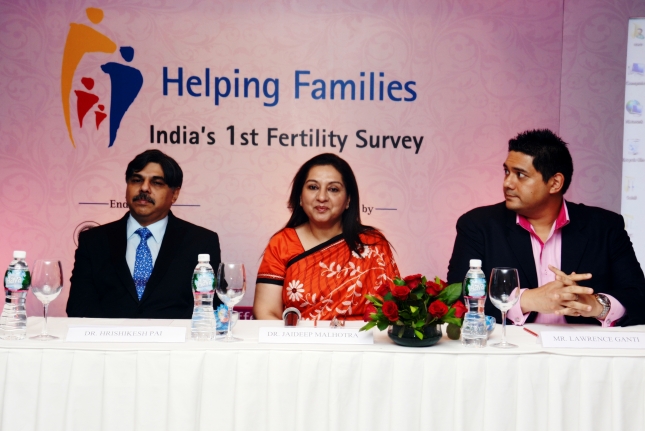
Left to right – Dr. Hrishikesh Pai, Dr. Jaideep Malhotra and Mr. Lawrence Ganti, Merck Serono India
“India is a vast and, diverse nation. With changing lifestyle, stress and delayed marriages – the incidence of infertility is also on the rise with many other health disorders. 1 out of 10 couples are infertile – hope is on hand – if they reach the right doctors in time. Being the world leaders in fertility treatment, with an estimated 1.8 million babies born thanks to our innovative products, we have helped thousands of couples to realize their dream of having a child. Merck Serono continues to pursue focused research and development in order to offer patients the infertility treatments of tomorrow,” said Mr. Lawrence Ganti, General Manager & Country Head, Merck Serono India.
‘Helping Families’ survey found that couples nowadays expressed great faith in assisted reproductive technological advancements like IVF. Respondents expressed tremendous stress and highlighted the need for immediate positive results.
Dr. Jaideep Malhotra, President elect ASPIRE 2014 & Director, Malhotra Nursing & Maternity Home, stated, “There is a general lack of awareness among the public regarding infertility as it is a taboo subject. In the quest for conception, many couples opt for alternative therapies and religious rituals thus frittering away crucial age and time. Not just that, even today, women are pressurized in all aspects concerning fertility. The stigma and trauma associated with this condition is extreme.”
The decline in fertility started a decade back, with a troubling 17% decrease observed since the year 2000. Compounded by lack of acceptance and doctor checkups, the problem of infertility has raised multi-fold. Nearly 61% of the couples were shown to derive information from sources like the internet and friends. Even in the 21st century, 64% of the couples studied believed in God’s will and delayed treatment, the survey observed.
——————————————————————————————————————————–
About ISAR
With their pan-India presence of 12 chapters, the aim of ISAR is “Better Care of the Concerned Couple, knowledge about their investigations and further education of those who serve them”. For more information, please visit http://www.isarindia.net/
About ASPIRE
ASPIRE, the Asia Pacific Initiative on Reproduction, is a unique task force of clinicians and scientists involved in the management of fertility and Assisted Reproductive Technology (ART). ASPIRE aims to promote awareness of infertility and ART, and to improve infertility-related services in the Asia-Pacific region. For more information, please visit http://www.aspire-reproduction.org
About Merck Serono
Merck Serono is the biopharmaceutical division of Merck KGaA. With headquarters in Darmstadt, Germany, Merck Serono offers leading brands in 150 countries to help patients with cancer, multiple sclerosis, infertility, endocrine and metabolic disorders as well as cardiovascular diseases. We have also been a trusted name and market leader in prescription multi-vitamins for several generations now. Through our areas of expertise and a strong team of more than 1,300 employees in India, we focus on sustainable medical breakthroughs to improve existing treatments and efforts. In the United States and Canada, EMD Serono operates as a separately incorporated subsidiary of Merck Serono. For more information, please visit www.merckserono.in
Tags: asia pacific initiative, ASPIRE, Bloom IVF, Dr. Hrishikesh Pai, Dr. Jaideep Malhotra, female factor infertility, Fertility, fertility drugs, Gonal-F® (follitropin alfa for injection) pen, Helping Families Survey, infertility experts, ISAR, male factor infertility, medicine, merck serono, Merck Serono Fertility, Merck Serono India, pai president
 • Investment reflects company’s ongoing commitment to innovation in fertility research
• Investment reflects company’s ongoing commitment to innovation in fertility research
• Globally, seven projects receive funding from this grant cycle
Darmstadt, Germany / London, July 9, 2013 – Merck Serono, the biopharmaceutical division of Merck, announced its strong support of the Grant for Fertility Innovation (GFI) fund with grants totaling up to € 4 million for the years 2013 / 2014. The announcement was made during the 29th annual meeting of the European Society of Human Reproduction and Embryology (ESHRE) currently taking place in London.
Launched in 2009, the GFI is dedicated to transforming innovative translational fertility research projects into concrete health solutions to improve the outcomes of assisted reproductive technologies (ART). In the last four years, approximately 525 applications to GFI were received from over 45 countries around the world; of these applications, 26 projects from 16 countries were awarded a grant for a total of € 6 million. “Advancing our ability to identify, validate and bring to the clinic innovative technologies for the benefit of the patients who are struggling to conceive is a core principle of the Grant for Fertility Innovation,” said Dr. Annalisa Jenkins, Executive Vice President and Head of Global Development and Medical at Merck Serono. “By building and leveraging a global network of expertise made available through the GFI, we hope to accelerate the discovery of new science and medical innovation that may lead to new therapeutic options for people facing fertility challenges.”
Every year, the GFI awardees are announced during a ceremony at ESHRE’s annual meeting. Dr. Annalisa Jenkins presided at this year’s ceremony and was joined by Dr. Carlos Simon from Instituto Valenciano de Infertilidad and Dr. Antonio Capalbo from Genera Center for Reproductive Medicine, Rome.
This year, seven winning projects were announced during the ceremony:
- Alice Chen – Auxogyn, Inc, San Francisco, CA (USA): Non-invasive, automated aneuploidy screening in human embryos.
- Mandy Katz-Jaffe and Rebecca Krisher – National Foundation for Fertility Research, Lone Tree, Colorado (USA): Improve live birth rates for women with diminished ovarian reserve.
- Samir Hamamah – University Hospital of Montpellier, Montpellier (FRANCE): Prospective study of the ‘Win Test’ (Window Implantation Test).
- Carlos Simón – Instituto Valenciano de Infertilidad, Valencia (SPAIN): Analysis and functionality of miRNAs on endometrial fluid.
- Marie Louise Wissing – PhD student at Holbaek Fertility Clinic/ University of Copenhagen, Copenhagen (DENMARK): MicroRNA profiling of Serum, Follicular fluid and Cumulus cells.
- Antonio Capalbo and Laura Rienzi – Genera Center for Reproductive Medicine, Rome (ITALY): MicroRNA secretion profile analysis in blastocyst spent culture media.
- Jie Li – The First Affiliated Hospital of Sun Yat-sen University, Guangzhou (CHINA): Utilization of Electrochemiluminescence immunoassay (ECLIA) for the detection of Early Embryonic Biomarkers for Embryo Selection.
About the Grant for Fertility Innovation (GFI)
Merck Serono announced the initiation of the GFI program in 2009 to support the advancement of science and innovative technologies in the fertility field. This grant is awarded every year to translational research projects that can potentially improve baby birth rate for the benefit of the patients. Each project is blinded and evaluated by a jury of experts according to five criteria: support to increase baby birth rate; innovative
research; scientific rationale; feasibility and practical utility.
For further information about the GFI and how to apply for next year’s grants, please visit:
http://www.grantforfertilityinnovation.com
About Merck Serono
Merck Serono is the biopharmaceutical division of Merck KGaA. With headquarters in Darmstadt, Germany, Merck Serono offers leading brands in 150 countries to help patients with cancer, multiple sclerosis, infertility, endocrine and metabolic disorders as well as cardiovascular diseases. In the United States and Canada, EMD Serono operates as a separately incorporated subsidiary of Merck Serono.
Merck Serono discovers, develops, manufactures and markets prescription medicines of both chemical and biological origin in specialist indications. We have an enduring commitment to deliver novel therapies in our core focus areas of neurodegenerative diseases, oncology and rheumatology.
Merck KGaA
Merck is a leading pharmaceutical, chemical and life science company with total revenues of € 11.2 billion in 2012, a history that began in 1668, and a future shaped by approx. 38,000 employees in 66 countries. Its success is characterized by innovations from entrepreneurial employees. Merck’s operating activities come under the umbrella of Merck KGaA, in which the Merck family holds an approximately 70% interest and free shareholders own the remaining approximately 30%. In 1917 the U.S. subsidiary Merck & Co. was expropriated and has been an independent company ever since.
For more information, please visit http://www.merckserono.com or http://www.merckgroup.com
Click to access GFI%20press%20release_2013_EN_tcm283_17111.pdf
Tags: Fertility, fertility drugs, Grant for Fertility Innovation, Merck Serono Fertility
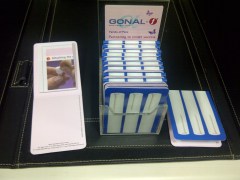 Merck Serono, the pharmaceutical division of Merck, recently selected a Z-CARD® to create awareness of its new, self-injecting Gonal F pre-filled pen, which is prescribed by doctors in India to treat infertility in women.
Merck Serono, the pharmaceutical division of Merck, recently selected a Z-CARD® to create awareness of its new, self-injecting Gonal F pre-filled pen, which is prescribed by doctors in India to treat infertility in women.
Produced by Z-CARD® India, part of the Z-CARD® Africa, Middle East, India and Turkey (ZAMI) stable, the card was printed in eight languages and handed out to patients by doctors inside their consulting rooms.

Srinivas Madabusi, Director – Head of Biotech and Women’s Health, Merck Serono India
We also produced acrylic display boxes that could stand on the doctors desks to make distribution of Gonal F pen Z-CARD®s easy, says Floyd Fernandes from Z-CARD® India.
The Z-CARD® (234mm x 350mm in size when open) was designed with bespoke hinged covers that ensured that it was only 64mm x 85mm in size when closed.
This compact solution made it easy for patients to put inside their bag or purse when leaving the doctor’s clinic, says Srinivas Madabusi, the Director & Head of Biotech and Women’s Health at Merck Serono India.
The card contains step-by-step information on how to use the pre-filled pen right from how to attach the needle to removing air bubbles, setting the dose and injecting the medication as prescribed by the doctor. A dose chart table is also included on the Z-CARD® so that patients can keep a record of the dates and the dosage taken, Madabusi adds.
Tags: Biotech, environment, Fertility, fertility drugs, Gonal F pre-filled pen, Gonal-F® (follitropin alfa for injection) pen, health, medicine, mental-health, merck kgaa, merck serono, Merck Serono Fertility, Merck Serono India, science, Srinivas Madabusi, treatment, Women's Health, Z-CARD
Scientists have sequenced the entire genetic code of individual human sperm cells for the first time, in a breakthrough which will help doctors understand and diagnose fertility problems.
 Researchers from Stanford University mapped out the entire genomes of 91 separate sperm cells – through which fathers pass on physical characteristics to their children – which were donated by a 40-year-old man.
Researchers from Stanford University mapped out the entire genomes of 91 separate sperm cells – through which fathers pass on physical characteristics to their children – which were donated by a 40-year-old man.
The results will allow scientists a closer view of the natural process called recombination, through which a baby inherits different elements of their DNA from each of their grandparents.
Recombination is important because it means children develop completely new genetic codes and add to the diversity of the human race, which would not be the case if they inherited entire chromosomes from their parents.
But problems in the process can result in sperm missing certain portions of genetic code or even entire chromosomes, potentially leading to infertility. Until now, such issues have been hard to diagnose.
Prof Stephen Quake, who led the study published in the Cell journal, said: “People have difficulty conceiving children due to reproductive disorders, and this will provide a very effective way to analyse when there are problems with their sperm.
Tags: Biotech, chromosomes, Fertility, fertility drugs, genetic, human sperm, merck kgaa, merck kgaa darmstadt, merck serono, Merck Serono Fertility, Merck Serono India, Recombination, treatment
HONG KONG (Reuters) Wed, Sep 5, 2012 – Women in Asia are largely ignorant about fertility problems and tend to blame their failure to conceive on “God’s will” and bad luck, a survey has found.
The survey, which covered 1,000 women in 10 countries who had been trying to conceive for at least six months, found that 62 percent of them did not suspect they may have a fertility problem.

Photo By AHMAD MASOOD/Reuters
They were even less likely to point the finger at their husbands, with 80 percent of them not suspecting that their partners may have a problem with fertility. Infertility is defined by the World Health Organisation as the inability to conceive after a year of regular, unprotected sex. But only 43 percent of the women surveyed knew that. Only 30 percent of the women, all aged 25-40, recognised that obesity could reduce fertility and only 36 percent knew that chances of getting pregnant declined with age. Forty-three percent did not know a man may be infertile even if he could achieve an erection and 73 percent were unaware that men who had mumps after puberty could be infertile later on.
Instead of getting treatment, 46 percent of respondents blamed their inability to conceive on “God’s will” and 45 percent put it down to bad luck.
Lead researcher P C Wong at the National University Hospital Women’s Centre in Singapore said, “Such a lack of understanding could result in couples waiting too long – only to realise when they finally decided to seek help that it may be too late.”
“That’s a lost opportunity because even if they come for treatment, our success of treatment is higher with younger women,” said Wong, who heads the reproductive endocrinology and infertility division at the hospital.
Chances of success with in-vitro fertilisation – the best known fertility treatment – is 40-50 percent when a woman is under 30 years old but that drops to 10 percent once the woman is over 40. By 44-45, the chance of success is one percent.
“The reason is because eggs in the ovaries decline in quality and quantity … as we go along and age, the chances of conceiving is much lower,” Wong said by telephone.
The survey, commissioned by Merck KGaA unit Merck Serono, covered China, India, Japan, South Korea, Thailand, Vietnam, Singapore, Hong Kong, Taiwan and Malaysia.
Wong said his team hoped to work on a similar survey targeting men in Asia.
(Reporting by Tan Ee Lyn; Editing by Robert Birsel).
Tags: Biotech, climate, current-events, Family Medicines, Fertility, fertility drugs, Gonal-F® (follitropin alfa for injection) pen, merck kgaa, merck kgaa darmstadt, merck serono, Merck Serono Fertility, Merck Serono India, pharma, Pharmaceutical, politics, research, science, treatment, vacation
With the Indian Biotechnology segment growing at 15% per year, career opportunities in fields such as bio-pharmacy, bio-service, bio-agriculture, bio-industrial and bio-informatics is burgeoning that the most jobs are 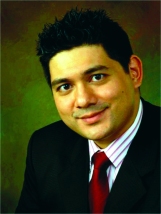 currently available in the private sector and for research & development, marketing, sales/business development and customer support profiles.
currently available in the private sector and for research & development, marketing, sales/business development and customer support profiles.
The demand at the entry level in the biotechnology industry may not be encouraging. The reason being, the industry is still at a nascent stage in India.
“Many pharmaceutical companies have established R&D centers in India and are considering tapping India’s talent. Graduates with good academic results, relevant experience and strong soft skills can look forward to a range of positions in the field”, remarked Lawrence Ganti, Director – Head, Merck Serono India in the TimesJobs.com Recruitment Trend Report (RecruiteX January-March 2012).
According to industry experts, analytical and communication skills are very crucial together with right qualification to have a successful career in the biotechnology industry.
7 Aug, 2012, 06.47PM IST
http://economictimes.indiatimes.com/news/news-by-industry/jobs/indian-biotech-industry-growing-at-15-annually-abundant-job-opportunities/articleshow/15390536.cms
Tags: bio-agriculture, bio-industrial, bio-informatics, bio-pharmacy, bio-service, Biotech, Biotechnology, Cancer Treatment, climate, Family Medicines, Fertility, fertility drugs, health, Lawrence Ganti, merck serono, Merck Serono India, patients, Patients Assistance program, Pharmaceutical, research, science, timesjobs com recruitment, treatment
IVF research conducted by Kew scientist Professor Lois Salamonsen has received international recognition.
Professor Salamonsen heads a team of scientists at Prince Henry’s Institute (PHI), Australia’s leading centres for reproductive health and endocrine research, who have been researching ways to improve successful pregnancy rates for IVF.
The team were the first non-European scientists to be recognised in the recent annual Merck Serono’s Grant for Fertility Innovation (GFI) awards presented in Istanbul.
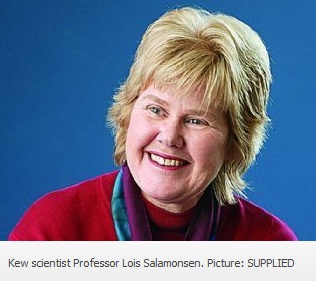
“This award is a tremendous honour and I am extremely proud to receive this on behalf of all the researchers from Prince Henry’s Institute and Monash IVF who are contributing to this innovative and crucial fertility research,” Professor Salamonsen said.
The research was seeking to understand how and when the lining of the uterus was receptive to the implantation of an embryo.
“We know that receptivity occurs for only a very short time in each cycle; understanding the underlying factors that contribute to this, may enable us to test patients and determine the optimal time to re-implant their embryos during IVF,” Professor Salamonsen said.
“It may also lead to advancements in fertility treatments and contraceptives.”
Professor Salamonsen said the award would help fund the group’s collaborative investigation to identify endometrial receptivity markers.

Source Link < http://progress-leader.whereilive.com.au/news/story/kew-professors-ivf-breakthrough-1/ >
Tags: Biotech, climate, endocrine research, Fertility, fertility drugs, fertility research, fertility treatments, IVF research, Kew scientist Professor Lois Salamonsen, merck serono, Merck Serono Fertility, Merck Serono India, Merck Serono's Grant for Fertility Innovation (GFI), monash ivf, Pharmaceutical, Prince Henry's Institute and Monash IVF, reproductive health, research, science, technology, treatment
Geneva, Switzerland, 3 July 2012
Merck Serono, a division of Merck, Darmstadt, Germany, announced during the 28th annual meeting of the European Society of Human Reproduction and Embryology (ESHRE), that the company will expand its program fund named Grant for Fertility Innovation (GFI) to €4 million for 2012/2013.
Announced for the first time in 2009, the GFI is dedicated to transforming innovative translational fertility research projects at academic centers into concrete health solutions to improve the outcomes of assisted reproductive technologies (ART). In the last three years, around 400 applications to GFI were received from over 40 countries around the world.
“We welcome Merck Serono’s commitment which contributes to fuel innovation in the field of fertility. Since the 1950s, great discoveries have been made leading to the development of treatments and the birth of millions of babies thanks to cutting edge techniques such as in vitro fertilization,” said Dr. Anna Veiga, Chaiman of ESHRE. “While tremendous progress has been made over the years, research must continue to allow further advances.”
“Our GFI program has already enabled previous winners to publish important research, which may lead to new medical approaches in fertility, a key therapeutic area for Research and Development at Merck Serono,” said Dr. Annalisa Jenkins, Executive Vice President Global Development and Medical at Merck Serono. “We firmly believe that scientific collaboration that brings together researchers from across the academic and industry continuum will be the leading driver for the next wave of research and medical innovation.”
Every year, the GFI awardees are announced during a ceremony at ESHRE’s annual meeting. This year’s ceremony was presided by Dr. Annalisa Jenkins, joined by Timur Gürgan, Chairman of the Local Organizing Committee of ESHRE 2012, Dr. Anna Veiga, Chairman of ESHRE, and Prof. Nick Macklon, Chair of Obstetrics and Gynecology, at the University of Southampton, and past GFI winner.
This year, nine winning projects were announced during the ceremony:
• Edson Borges Jr. (Brazil): Non-invasive prediction of embryo implantation potential and culture media
• Angelika Daser (Germany): Direct counting of chromatids in polar bodies
• Ellen Greenblatt (Canada): Validation of endometrial receptivity biomarkers predictive of success
• Marcos Horton (Argentina): Fourier -Transform Infrared spectroscopy for metabolomics in IVF
• Giovanni Ruvolo (Italy): A new strategy in selecting oocytes with high implantation potentiality
• Lois A. Salamonsen (Australia): Uterine receptivity: the final hurdle in IVF
• Rossana Sapiro (Uruguay): Increase sperm quality by improvement of mitochondrial activity
• François Vialard (France): PIF-Biomarker of successful pregnancy
• Dagan Wells (UK): Non-invasive detection of chromosome abnormality in human oocytes
 Notes to editors:
Notes to editors:
Photos of the award ceremony are available on the GFI website: www.grantforfertilityinnovation.com.
About the Grant for Fertility Innovation (GFI)
Merck Serono announced the initiation of the GFI program in 2009 to support the advancement of science and innovative technologies in the fertility field. This grant is awarded every year to translational research projects that can potentially improve baby birth rate for the benefit of the patients. Each project is blinded and evaluated by a jury of experts according to five criteria: support to increase baby birth rate; innovative research; scientific rationale; feasibility and practical utility.
For further information about the GFI and how to apply for next year’s grants, please visit: www.grantforfertilityinnovation.com
About Merck Serono
Merck Serono is the biopharmaceutical division of Merck KGaA. With headquarters in Geneva, Switzerland, Merck Serono offers leading brands in 150 countries to help patients with cancer, multiple sclerosis, infertility, endocrine and metabolic disorders as well as cardiovascular diseases. In the United States and Canada, EMD Serono operates as a separately incorporated subsidiary of Merck Serono.
Merck Serono discovers, develops, manufactures and markets prescription medicines of both chemical and biological origin in specialist indications. We have an enduring commitment to deliver novel therapies in our core focus areas of neurodegenerative diseases, oncology and rheumatology.
About Merck
Merck is a global pharmaceutical and chemical company with total revenues of €10.3 billion in 2011, a history that began in 1668, and a future shaped by more than 40,000 employees in 67 countries. Its success is characterized by innovations from entrepreneurial employees. Merck’s operating activities come under the umbrella of Merck KGaA, in which the Merck family holds an approximately 70% interest and free shareholders own the remaining approximately 30%. In 1917 the U.S. subsidiary Merck & Co. was expropriated and has been an independent company ever since.
For more information, please visit www.merckserono.com or www.merckgroup.com
Tags: assisted reproductive technologies, Biotech, climate, drugs, Family Medicines, Fertility, fertility drugs, Gonal-F® (follitropin alfa for injection) pen, merck darmstadt, merck kgaa, merck kgaa darmstadt, merck serono, Merck Serono Fertility, Merck Serono India, obstetrics and gynecology, pharma, Pharmaceautical Company, Pharmaceutical, research, science, treatment, vitro fertilization
More women die at childbirth in India than anywhere in the world. This can be fixed only if the government focuses on the quality, not quantity, of healthcare it is providing.
“As is always, the numbers are very impressive”. Under the National Rural Health Mission (NRHM), 8,722 doctors, 2,914 specialists, 14,529 paramedics, 33, 413 staff nurses, 69,662 auxiliary nurse midwives, and 10,995 doctors and 3,894 paramedics practicing traditional medicine have been hired to ensure that everyone in rural India—irrespective of where they live and how much they earn — have access to basic healthcare facilities.
doctors, 2,914 specialists, 14,529 paramedics, 33, 413 staff nurses, 69,662 auxiliary nurse midwives, and 10,995 doctors and 3,894 paramedics practicing traditional medicine have been hired to ensure that everyone in rural India—irrespective of where they live and how much they earn — have access to basic healthcare facilities.
Government data also shows that decentralisation, flexible financing, improved management and incentives — have ensured more women were choosing hospitals over home to deliver their babies, bringing the maternal mortality rate (MMR) down from 254 per lakh live births in 2006 to 212 in 2009. Still, 12.5 lakh newborns and 63,000 women die each year cause of pregnancy- related causes.
QUALITY CHALLENGED
The devil is in the detail. An incredible 1,3 crore (11.3 million) women have benefited from the Janani Suraksha Yojana (JSY), which offers pregnant women free and cashless deliveries, including free caesarean-sections, and Rs. 1,400/- incentive to deliver in a hospital. There is low-birth preparedness that leads to delays in pregnant women reaching a hospital and getting treated for preventable complications.
An analysis of maternal deaths, for example, showed that 13% deaths happened on the way to the hospital and 11% after the women return home, which shows poor management before and at the hospital. What’s clearly lacking is quality. Quality is lost in the rush to meet targets, such as attaining 100% institutional deliveries. We have the standards, technical tools and the basic infrastructure, needed, but still the quality of delivery depends on people, not on standard compliances.
WHO’S TO BIAME?
The quality is missing and hospitals cannot continue to take pride in institutional deliveries, if it’s just taking deaths from home to hospitals. Most government institutions have a take it or leave it approach and don’t care if the patients don’t like what they offer. This attitude needs to change, which is tough because, in this country, we are very tolerant of bad quality.
A major reason for the national apathy to incompetence is that action is rarely taken against erring government appointees, who focus more on hanging on to the job than doing it well. What will improve quality is better tracking and monitoring to identity and eliminates avoidable cause of death and complications help identify areas specific problems and ensure transparency.
But the review should not be done by the provider, as it usually happens in India. There is massive underreporting of deaths, with one state reporting only 20% maternal deaths, with the doctors listing the deaths under different pregnancy- related complications, such as septicaemia or organ failure.
Source: UNITED NATIONS
Hindustan Times – Delhi
Tags: Family Medicines, Fertility, fertility drugs, Merck Serono Fertility, Merck Serono India, patients, Patients Assistance program
Louise Clinton, Pharmacist at Bourn Hall Clinic, says “There seems to be an app for everything now and we are waiting with interest to trial the new Merck Serono Fertility Patient iPhone App which promises to make remembering when to take your meds easier.”
Merck Serono is a major developer of fertility drugs and has recently introduced the Gonal-F® (follitropin alfa for injection) pen which is used by patients to self administer ovarian stimulation drugs. Although this injector is much easier to use than previous devices, it still takes a bit of getting used to.
Louise explains that every Bourn Hall Clinic patient is shown how to use the injector but there is so much information to take in when you are going through IVF treatment that it is easy to forget something.
The app provides instructions for the use of the pen and a calendar to help remember when to take the medication and the next appointment.
“At Bourn Hall Clinic we always demonstrate the pen and provide a DVD and information leaflet, but as more people get accustomed to using smart phones it will be interesting to see how  many will prefer to use an app.”
many will prefer to use an app.”
The Merck Serono Fertility Patient iPhone app is to be launched at the BFS Annual Meeting in Leeds on 6th January 2012.
Courtesy : Bourn Hall Clinic Blog, Posted Date : Jan 6, 2012
Tags: Fertility, fertility drugs, Gonal-F® (follitropin alfa for injection) pen, iPhone app, ivf, IVF Treatment, merck serono, Merck Serono Fertility, Merck Serono India, patients, pen, Pharmaceutical, technology, treatment
















 Notes to editors:
Notes to editors: doctors, 2,914 specialists, 14,529 paramedics, 33, 413 staff nurses, 69,662 auxiliary nurse midwives, and 10,995 doctors and 3,894 paramedics practicing traditional medicine have been hired to ensure that everyone in rural India—irrespective of where they live and how much they earn — have access to basic healthcare facilities.
doctors, 2,914 specialists, 14,529 paramedics, 33, 413 staff nurses, 69,662 auxiliary nurse midwives, and 10,995 doctors and 3,894 paramedics practicing traditional medicine have been hired to ensure that everyone in rural India—irrespective of where they live and how much they earn — have access to basic healthcare facilities.
 many will prefer to use an app.”
many will prefer to use an app.”
